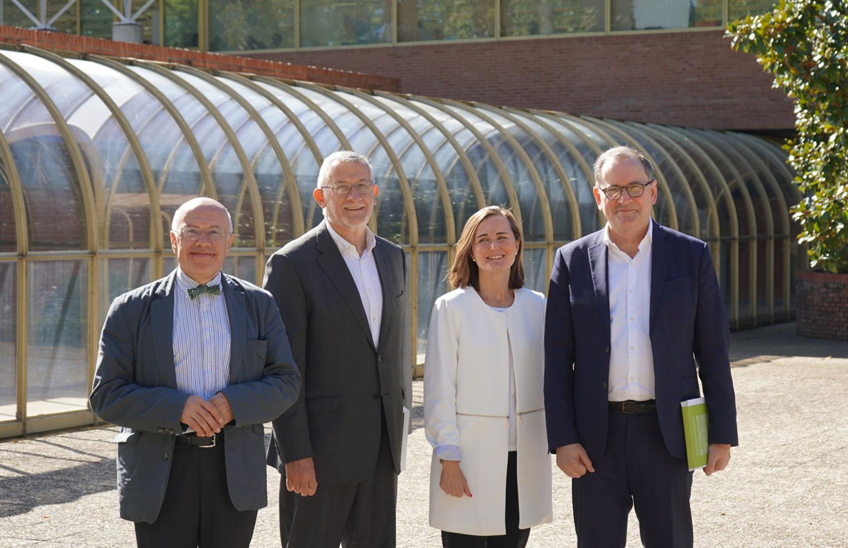Luis Tena: "I have enjoyed every class like a child".
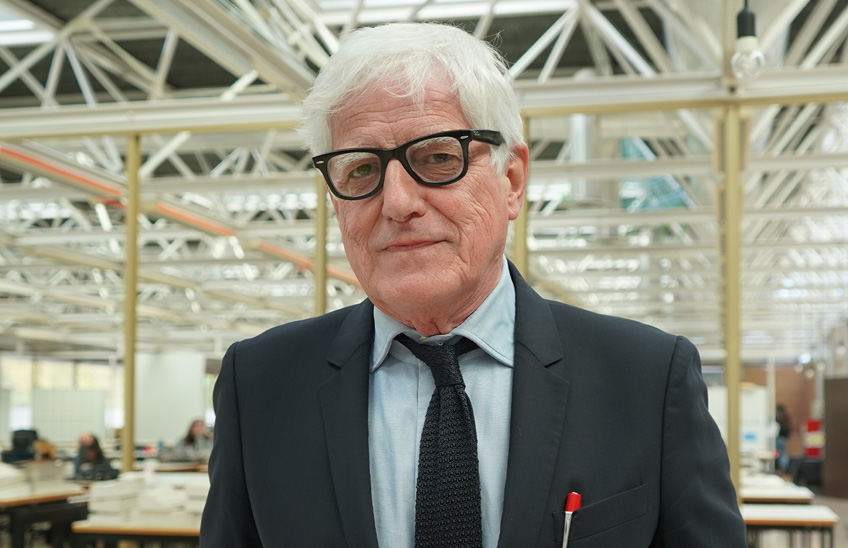
14 | 05 | 2024
After 44 years as a professor at the School of ArchitectureOn Tuesday, April 23, Luis Tena gave his last lecture class. When asked who he is, he answers with great pride: "the oldest professor of Architecture".
From large family (12 siblings) and from Bilbao, Luis Tena arrived at the University in 1969. He took advantage of the fact that a friend was studying in Pamplona to come for a week and get to know School of Architecture. He approached some professors and showed them his drawings. Tena says that at first the professors were not very convinced, but at the end of the week they encouraged him to take the pre-exam. The exam was on July 14: "While everyone was celebrating the last day of Sanfermines, I was studying like crazy," he says. When he was accepted, he confesses that he was the happiest man in the world. After six years as a student and 44 years as a teacher, he says goodbye to campus in Pamplona. He will continue to teach at the Master's Degree University in Architecture until December in Madrid.
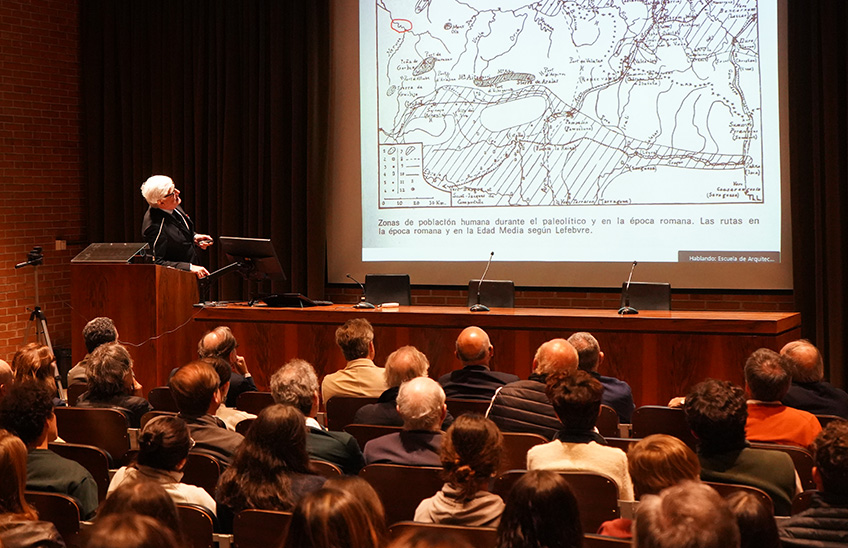
2024. Luis Tena giving his last lecture class
How do you remember your time as a student?
The first years were very hard, maybe five students out of forty passed. I studied Descriptive Geometry with Fernando Nagore. He told me that my project had "a certain grace", for me it was a compliment and I gained a lot of self-confidence.
I also started working with Professor Curro Inza, a very prestigious architect in Spain. He was very endearing, open and empathetic. He had set up a studio and hired as many students as he wanted. For me it was a parallel school because I spent many hours working with him. He passed away when I was in the fourth year of degree program, which left us all as orphans and very desolate.
And when did you start your career professor?
Leopoldo Gil Cornet Nebot, the then director of the School, called me to offer me this opportunity. He admired Curro very much and considered that those of us who were his disciples could join the School as teachers. At that time I was 27 years old and I was teaching class to 24 year olds at subject Projects. From then on I did nothing but learn. Later, after a stay in London, I began to specialize in Urban Planning.
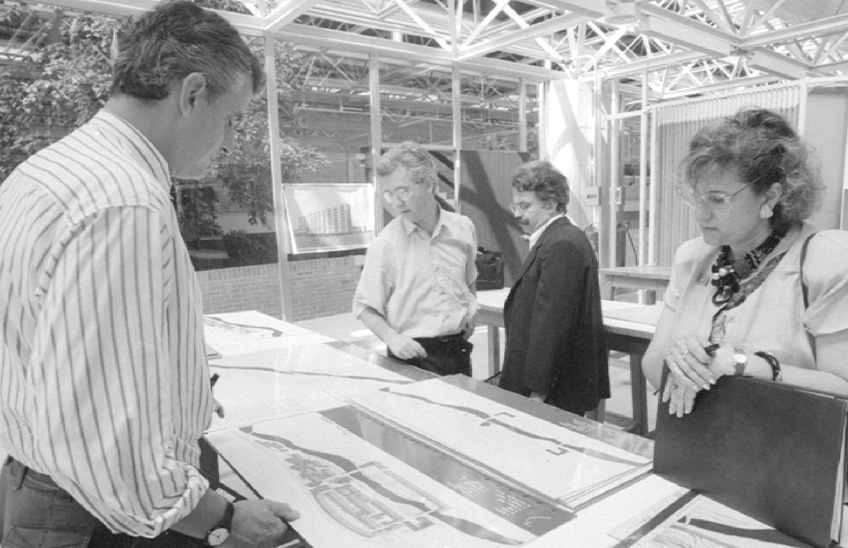
1990. Luis Tena received a award in the Competition of ideas for the urban development of Canfranc (Huesca).
What have you enjoyed the most over the years?
Two things: what the students teach you and the friendship you make with them and with the rest of the teachers. I have enjoyed every class like a child. I like what it has to do with acting: public speaking, preparing the classes, researching and studying. For 44 years I've gone down to the School with enthusiasm. When I go back up to my studio and get into reality, I realize it's a little rougher.
I have also had the good fortune to collaborate with the best architects in the world, such as Juan Navarro Baldeweg and Rafael Moneo. I am grateful to the School for choosing me to work with them because, thanks to that, today I consider them friends.
What committee would you give to someone who is starting their degree program as a teacher?
The degree program as a teacher is now a degree program of obstacles. To be a teacher is to have enthusiasm and desire, a taste for research and for transmitting knowledge, the illusion of seeing students become better. For me, hearing a student tell me "you may not know it, but you have helped me a lot" is a gift.
It is worth the teaching. I have been a much better professional and, above all, a better person. I feel grateful to the University and the School for the continuous contact with the people. The students are the best there is.
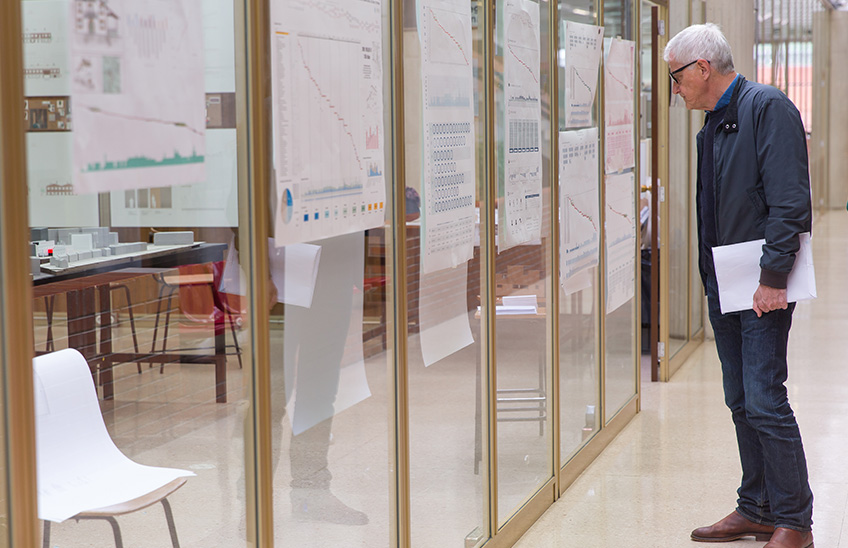
2019. Luis Tena evaluating the projects of the Architecture students.
How about your last class?
I had a great time. In that subject have the first contact with the city, but not from an exclusively technical point of view, also the city as the most important artificial creation of civilization. I love the definition made by Alberti, a Renaissance treatise writer, who says that the city is a big house and the house is a small city.
I have tried to make my version. In my definition, the city is the houses and streets arranged, varied, wise and beautiful. Aristotle said that equal people cannot form a city, it takes people of different ages, backgrounds, skills and all subject of knowledge: topography, politics, architecture, sociology, Economics... Finally, it has to be beautiful. Although we are pretentious, I consider architects to be a mixture of artists and technicians who pursue beauty.




